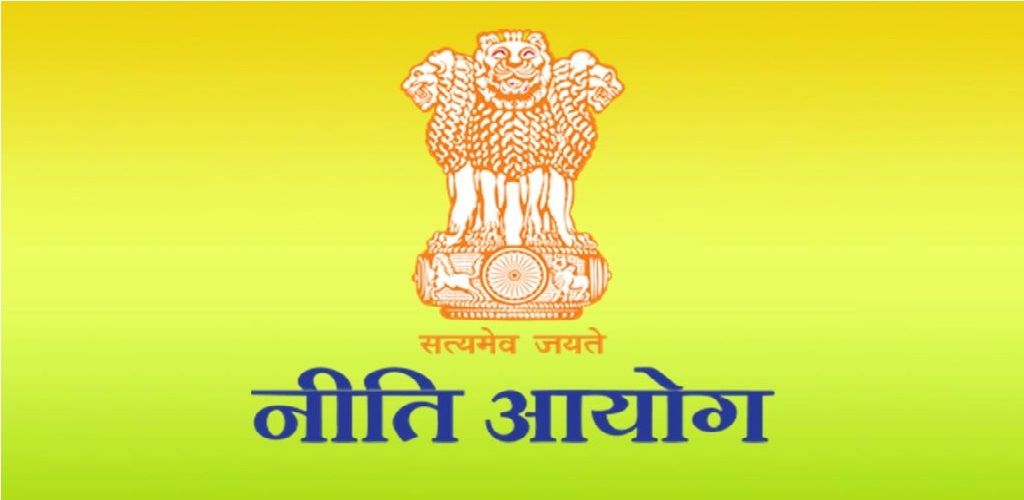In India, workers and employees often face unexpected money problems. Sometimes, they cannot work because they get sick or hurt out of the blue. At other times, their job might suddenly end, leaving them with no money. It’s tough when these things happen without warnings.
To tackle this issue, the government of India launched the Employees’ State Insurance Scheme (ESIS) in 1952. First, it began in Kanpur and Delhi. From there, it expanded rapidly, reaching every corner of India. Now, it is available in 843 locations, spread across 33 states, and Union Territories in India. As per the current data of the National Portal of India, more than 8.28 crore individuals benefit from the scheme’s provisions.
This guide helps you sign up for ESIS so you can also get help when you need it. Moreover, it sheds some light on its benefits and other important aspects.
Brief About ESIS
The ESIS, known as the Employee State Insurance Scheme, serves as a substantial safety resource for employees in India, offering essential protection.
Just like how you wear a helmet for protection while riding a bike, ESIS helps workers if they get sick, injured, or lose their jobs unexpectedly.
Here is how it works!
Let’s say you work in a factory and you hurt your arm while working. ESIS would help pay for your medical treatment so you can get better without worrying about the cost. It also gives you some money if you can’t work because of the injury. So, it’s a kind of backup plan for your health and finances when things do not go as planned.
Eligibility
- ESI covers workplaces with 10+ employees, like factories, hotels, restaurants, cinemas, and shops.
- Some states require 20+ employees for coverage.
- Workers earning up to Rs. 15,000/month are eligible to get ESI benefits.
- The wage limit of ESIS has also increased from Rs. 15,000 to Rs. 21,000, benefiting more employees.
- If you earn less than Rs. 21,000/month in an ESI-covered workplace, you likely qualify for benefits.
Scheme Contribution
- Employers and employees pay money to support the ESI Scheme.
- Employers contribute 4.75% of what they pay employees as wages.
- Employees also contribute but at a lower rate of 1.75%.
- Workers earning less than Rs. 137 per day don’t have to pay their share of the contribution.
How To Do ESIS Registration Online?
You can register for ESIS online through the following ways:
- Visit the ESIS portal.
- Scroll down and click on the “Employer Login” tab in blue color. You will be then directed to the employer login portal. Then click “Sign Up”.
- After you click the ‘Sign Up’ button, you have to give information about your company, like its name and the main person in charge, and then send the form.
- Once the above step is completed, you’ll get an email and a message on your phone to confirm. In the email, you’ll find your username and password for signing up as an employer and employee in the ESI scheme.
- Now go to the home screen and click on the same ‘Employer Login’. Use the username and password from the email to log in. Then, click on ‘New Employer Registration’.
- Pick the type of unit you have and click ‘Submit’.
- Now you’ll see ‘Employer Registration – Form 1’. Fill in all the details about your company and employees, then click ‘Submit’.
- After you submit Form-1, you’ll see a message about paying your first contribution. Click on ‘Pay Initial Contribution’ and follow the steps to pay online.
- Once you’ve paid six months in advance, you’ll get a ‘Registration Letter’ (C-11) from the ESIC department by email. This letter has a 17-digit ‘Registration Number’ and proves that you’re registered as an employer.
Documents Required To Register For ESIS Portal
To sign up for the ESI scheme, you’ll need certain documents. The exact ones might differ depending on your business and where it’s located, but here’s a general list:
- A copy of the Registration Certificate or License (A copy of the document that shows your business is registered)
- Memorandum and Articles of Association (If your business is a company, you’ll need a copy of these documents)
- A copy of the PAN Card of the Business
- A recent Bank Statement or Cancelled Cheque from your business account
- List of Employees (This includes info about your employees, including their names, addresses, when they joined, and how much they get paid)
- Passport-sized photographs of the Employer and Employees
- Copies of Aadhaar Card of Employees
- Specimen Signature of the Employer
- Details of the Directors/Partners/Proprietor (This includes info about the people in charge of your business, like their addresses and PAN details)
- Registration Certificate under the Shops and Establishments Act
- Incorporation Certificate (if your business is a company, you’ll need a copy of this certificate)
Remember, this list might change depending on where your business is located, so it’s a good idea to check the official ESIC website or talk to your local ESIC office for the most accurate info.
What Are The Benefits Of Registering For ESIS?
The ESIS Scheme offers many benefits to both employers and employees. Let’s take a look at some of them:
Legal Compliance:
ESIS registration ensures that employers comply with the legal requirements under the ESIS Act of 1949. This is important because it’s mandatory for eligible establishments to register, and failure to do so can result in penalties and legal consequences.
Cash Benefits:
One of the major advantages of the ESIS scheme is that it provides cash benefits to employees in various situations. For example,
- If an employee gets sick and can’t work, they can get a ‘Sickness Benefit’, which is 70% of their wages for up to 91 days.
- If an employee becomes disabled due to work-related reasons, they can receive a ‘Disablement Benefit’. This benefit can be temporary, where they get 90% of their last wages as long as they’re disabled, or permanent, where they get a lifelong payment based on the severity of their disability.
- Additionally, female employees can get a ‘Maternity Benefit’, which is 100% of their wages for 12 weeks when they have a baby.
- There’s also the Rajiv Gandhi Shramik Kalyan Yojana (RGSKY), which provides unemployment benefits to eligible workers.
- And in unfortunate circumstances like the death of an employee, the scheme provides ‘Funeral Expenses’ to help cover the costs.
Electronic Health Records:
Another benefit of the ESIS is the Electronic Health Record (EHR) system. This system stores all the medical information of the employees electronically. Thus, it helps reduce paperwork and administrative burdens for employers.
Moreover, these systems can help in promoting better coordination between healthcare providers and employers. Employers can easily communicate with healthcare professionals to obtain necessary medical information or updates on an employee’s health status. Thus, EHRs under ESIS make the entire managing process quite efficient both for the employers and the healthcare providers.
Lower Absenteeism & Lifted Team Morale:
When employers provide access to medical benefits and timely medical care to their employees through the ESI scheme, it helps them reduce absenteeism. After receiving proper treatment for illness and injuries without financial strain, they are more likely to return to work sooner.
The scheme can also enhance employee morale. Employees may feel more secure knowing that they have access to medical care and financial support during challenging times. This keeps them motivated, increases productivity, and promotes a healthier work-life balance, thus lifting morale.
VIBGYOR- Operation Indradhanush:
Under the ESIS, the mission Indradhanush was launched on 25th December 2014. It aims to make sure that 90% of children in India are fully protected with vaccines by 2020.
The goal is to give all the necessary vaccines to children up to 2 years old and pregnant women. This helps keep them safe from many diseases. Mission Indradhanush is a big effort to make sure that no child is left without the vaccine shield.
Improved Relationships Between Employers & Employees:
By offering social security benefits through ESIS, employers can build good and strong relationships with their employees. When employees or workers know that they have support from the company if they get sick or injured, they feel more valued, secure, and motivated to do their best.
This positive environment improves loyalty among employees. It also builds trust between employers and employees, making it easier to solve problems and work together smoothly.
Mistakes To Avoid While Registering Online For ESIS
When registering online for ESIS in India, it’s important to avoid certain mistakes to ensure a smooth and streamlined process. Here are some of them:
- Incomplete/Incorrect Company Information: Make sure to provide accurate and complete information about your company. Any mistakes in this information can lead to delays or issues in the registration process.
- Ignoring Confirmation Emails & Messages: After submitting the registration form, be sure to check your email and phone for confirmation messages. These messages contain important login credentials and confirmation of your registration status.
- Delaying Payment Of Initial Contribution: Promptly pay the initial contribution after submitting Form-1. Delaying payment can lead to delays in the registration process and may affect your compliance with ESIS regulations.
- Incomplete Form-1 Submission: Fill in all the required details accurately in Form-1. Incomplete submissions can lead to processing delays or rejection of your application.
- Choosing Incorrect Unit Type: Select the appropriate type of unit when registering as a new employer. Choosing the wrong unit type can result in incorrect classification and may cause issues later on.
- Not Following Proper Payment Procedures: Follow the steps carefully when paying the initial contribution online. Any errors in the payment process can lead to delays or complications in the registration process.
- Not Keeping Track Of Registration Status: Keep track of your registration status and follow up if you haven’t received the Registration Letter (C-11) within a reasonable time frame after payment. This letter is crucial as it contains your registration number and confirms your status as an employer under ESIS.
Frequently Asked Questions
ESIS is mandatory for employers with a certain number of employees in specified industries.
To get medical benefits from ESIS, insured people can go to ESI hospital or others in the network. They just need their ESIC smart card or insurance number for ID. In emergencies, they can go to any recognized hospital and claim it later.
Yes, dependents like spouses and children of insured people also get medical benefits. And, if the insured person dies due to a work injury, dependents may get extra benefits.
Yes. The Medical Helpline established by ESIC Hospitals offers round-the-clock medical assistance and guidance to patients and their families.
Yes. Pathological and X-ray services are available in ESI hospitals. They operate under the Public-Private Partnership (PPP) Model, wherein private entities collaborate with ESIC to deliver high-quality diagnostic services.
No, treatment at ESI hospitals is free for insured individuals and their dependents.
You should report this to the nearest ESIC office for appropriate action.








